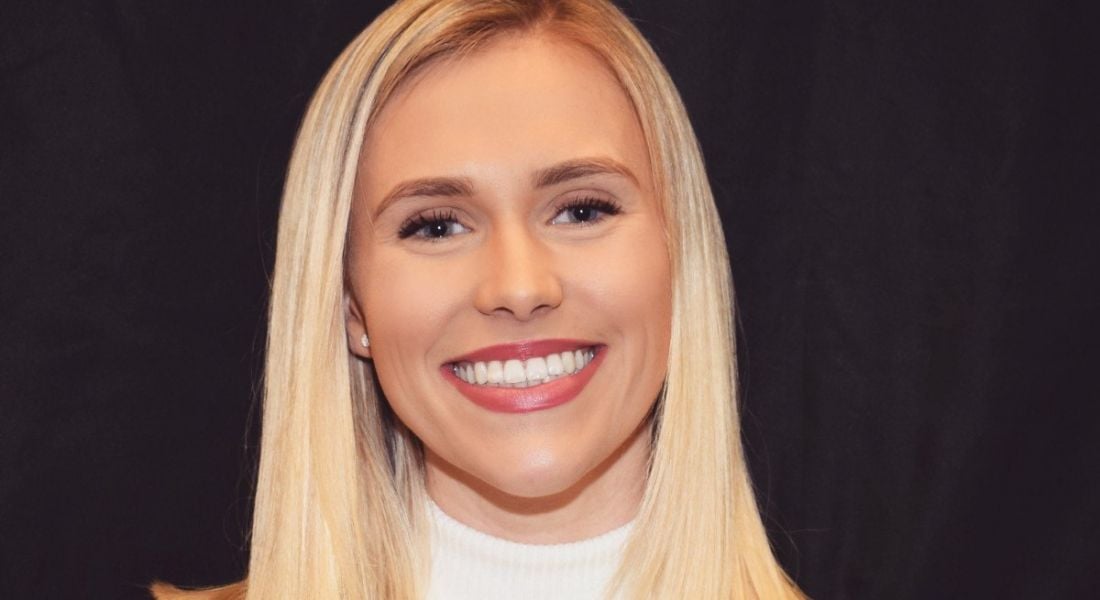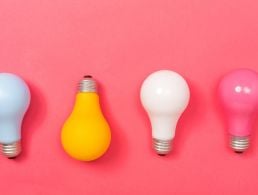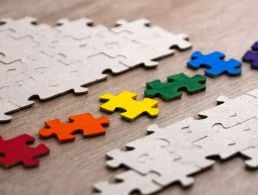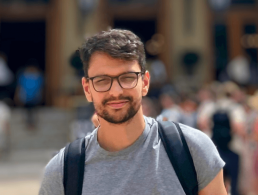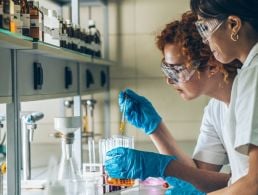Leah O’Keeffe of Johnson & Johnson discusses how she joined the company’s leadership development programme after graduating from college.
After graduating from physiology at University College Cork (UCC), Leah O’Keeffe realised that she was more of a “people person” and that lab work wasn’t for her. But she was eager to somehow commercialise her scientific knowledge and get involved in the industry, so she decided to do a master’s in biotechnology and business.
O’Keeffe is now on her first rotation of the Global Operations and Leadership Development (GOLD) programme at Johnson & Johnson. She was originally meant to move to the Netherlands for the role, but Covid-19 has forced her to carry it out from home instead.
Here, she explains why she’s excited for the opportunities the programme is already opening up for her – both as a young person and a woman in STEM.
‘These programmes tell young people that you’re never too young to know what you want’
– LEAH O’KEEFFE
How did you come to learn about the Johnson & Johnson GOLD programme?
While I was in UCC, I was a member of the Women in STEM (WiSTEM) society. The society was sponsored by Johnson & Johnson and as a result of this, we participated in numerous events with the organisation. This provided me with lots of opportunities for networking and exposure to graduate events, which outlined graduate roles available within the company.
I didn’t apply for any graduate roles during my undergrad because I knew I wanted to continue to do a master’s degree. However, during my final year, the vice-chair of the WiSTEM society told me she had been accepted onto the Johnson & Johnson GOLD programme.
Luckily, that summer I was working with Johnson & Johnson in their DePuy Synthes site as an intern, so I had the opportunity to make connections and gain more information about the programme. I spoke to people currently on the programme and programme coordinators. Once I gathered all my information, I knew that I wanted to apply.
What does a typical day on the programme look like for you?
My typical day is a little different from normal as a result of Covid-19. I am working from home and as cliché as it sounds, no two days are exactly the same. It’s very self-directed and self-motivated work; you have to take your own initiative with your projects and stay organised. This is great because the company trusts you from the beginning to manage your own time and work.
My typical day begins with me checking my to-do list to keep on top of my actions to complete while I sit at my desk with a cup of coffee. I have meetings spread throughout the day, varying from day to day. I have various projects that I’m working on, so these meetings are usually aimed at making actions and giving updates on projects to take the next steps to completion. I also have one-to-ones with my manager and mentor where they check up on me to make sure I don’t need help with anything.
In between meetings, I do what I call my admin work where I respond to emails, set up future meetings and complete actions on projects myself. These actions include organising data on Excel files, analysing the data, creating presentations, organising events and completing training exercises online.
I work in a global role, so this role involves a lot of virtual contact. I am currently working on stakeholder identification and engagement where I have meetings with leaders around the EMEA region. This involves collecting data on who their key stakeholders are site-by-site and how they engage with them, with the ultimate goal of us analysing the engagements and making sure the channels of communication are effective.
I also work on the Johnson & Johnson WiSTEM pillar, which I love. This involves organising and attending events and sometimes making videos to encourage children to consider STEM subjects in school.
What have been your favourite aspects of the programme so far?
One of my favourite aspects of the programme so far is the close relationship that I have with my peers in the GOLD programme. Even though we’re spread across Europe, we usually have a weekly catch-up call where we give updates and share our experiences with each other.
I had heard from previous years in the programme that you become good friends with your GOLD class, but I honestly didn’t fully believe them. I didn’t understand how you could form such a tight-knit friendship with people virtually, but I am so glad I have and I can’t wait to visit everyone around Europe once restrictions are lifted.
Why do you think programmes like these are important for young people like yourself?
I truly believe that the GOLD programme is one of a kind and is so important for young people. It fosters ambition at an accelerated rate and really wants you to reach your full potential. During the programme, opportunities are basically thrown at you and you’re encouraged to choose your projects based on your ultimate career goals. These programmes tell young people that you’re never too young to know what you want.
In addition, these programmes are invaluable for ambitious women. There is a leaky pipeline of women in STEM careers, usually due to career interruptions because of maternity leave and building a family. There is an unspoken pressure in women’s lives who wish to succeed in their careers and have children.
Accelerating your career rate through programmes like GOLD provides the opportunity to establish yourself strongly in your chosen career before making these other important decisions. Women shouldn’t have to delay having families because of work pressures or leave work and have their career path suffer to have children.
Would you recommend the Johnson & Johnson GOLD programme to others?
Yes, I’d definitely recommend this programme to others. It’s such a great opportunity to fulfil your potential but also gives you the opportunity to explore during your youth. During the programme, you rotate into three different roles which can be in up to three different countries. This gives you the opportunity to see the world and take on a full-time role. This was really important to me because I love to travel and experience different cultures.
What kinds of people do you think it’s suited to?
I think this programme is suited to people who are outgoing and sociable but also ambitious. A common trait that I’ve seen throughout all the GOLD candidates is that we all aim to see ourselves in leadership roles in the next few years, and this programme provides us with the foundation to make that possible.
I would also say that confidence is a trait that would be well-suited to the GOLD programme as the interview process involves making presentations and talking to a lot of people.
What advice would you give anyone thinking of applying for this or something similar?
I truly believe you have to be in it to win it. If you apply for something, you may or may not get it but if you don’t apply, you definitely won’t. Rejection is not something to be feared because I believe that our choices will steer us in the right direction. Rejection is also a character-building process, which helps us to increase our resilience to adversity in the future.
If you’re worried about the overall undertaking of the programme itself, I would say reach out to people on the programme – those who run it or have completed it. LinkedIn is great for this and people are always happy to share their knowledge.
Learn more about the Johnson & Johnson GOLD programme here.
